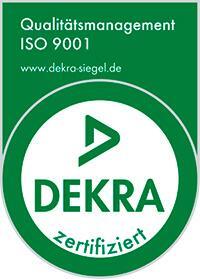A varicocele is one of the most common causes of infertility. This condition also often leads to scrotal discomfort, scrotal pain, testicular atrophy, and decreased testosterone production. Timely treatment can, however, avoid these problems. Doctors at German hospitals perform modern microsurgical interventions for the treatment of testicular vein varicose expansion. These surgical procedures rarely cause any complications, do not require long-term rehabilitation, and provide a low risk of recurrence. You are welcome to use the Booking Health service to find out prices and make an appointment for your treatment in Germany.
Content
- What is a varicocele?
- Should a varicocele be treated?
- Principles of treatment of varicocele
- Marmar surgery
- Transabdominal laparoscopic varicocelectomy
- Endovascular treatment of varicocele
- Varicocele treatment results
- Why to undergo your treatment in Germany?
What is a varicocele?
A varicocele is a condition caused by varicose veins in the spermatic cord. It is found in 15-20% of all men and occurs in about 40% of infertile men.
A varicocele is mostly found only in the left testicle, while both testicles are affected less often. The cases when testicular vein varicose expansion occurs only on the right side are very rare. A right-sided varicocele may be caused by vena cava obstruction, so such patients may require additional diagnostics.
The disease manifests no symptoms in most men. Occasionally, a patient may notice dilated scrotal veins, but only in the case of a severe varicocele. Some men complain of scrotal pain.
A varicocele is detected during a routine diagnostic examination with scrotal palpation. In addition, the condition can be detected during infertility diagnostics.
Doctors conduct a Doppler ultrasound to confirm and clarify the diagnosis. Most German hospitals use color flow mapping. When determining indications for treatment, elastography can also be used.
Should a varicocele be treated?
A varicocele can be left untreated in the following cases:
- varicose expansion was diagnosed on one side of the scrotum only;
- a person does not feel any discomfort;
- a patient does not have any signs of testicular atrophy;
- normal testosterone levels;
- normal sperm counts, or a man has no reproductive plans even in the distant future.
A varicocele is most often treated to eliminate and prevent infertility and hypogonadism (sex hormone deficiency). The effect of surgery on reproductive function, however, is limited. If the quality of the sperm is moderately impaired, improvement is possible. But if the results of a spermogram are very poor, the restoration of fertility is unlikely even after surgery.
Much better treatment results can be achieved in patients with hypogonadism (low testosterone levels). A varicocele reduces the production of male sex hormones by the Leydig cells in the testicles. Once the treatment of varicocele is completed, blood testosterone levels will rise in 80% of patients, with an average increase of 100 to 140 ng/ml, so surgery is considered a good option to solve the problem of sex hormone deficiency.
The reasons for varicocele surgery in adolescents are considered to be reduced testicular size compared to the age norm, low sex hormone levels, and delayed puberty. Some doctors insist that all cases of bilateral varicoceles need to be treated to avoid sexual dysfunction.
Principles of treatment of varicocele
There are no effective conservative treatment options for a varicocele. There are no such pills, exercises, or procedures that would reduce the size of veins or at least slow down the pathological processes occurring in the testicles.
Treatment in Germany is provided only with the use of surgical techniques. The objective of surgery is to stop the blood flow through the dilated veins in one way or another. To do this, they can be ligated, clipped, transected, or embolized. Operations also differ in the surgical approaches used. These can be as follows:
- retroperitoneal;
- abdominal;
- laparoscopic;
- subinguinal;
- inguinal;
- scrotal.
Most surgical procedures are minimally traumatic and are performed on an outpatient basis without a hospital stay. Some surgical interventions require a short hospital stay of 2-3 days.
The ligation of the varicose veins does not mean that blood will no longer be able to flow from the testicles. There are also other ways in which it flows. These are the cremasteric and vas deferens veins.
Marmar surgery
There have been dozens of operations developed for the treatment of varicocele around the world. Surgeons still use several types of surgical interventions, but the most common among them is Marmar surgery. This procedure is simple, non-traumatic, and very effective, providing a minimal risk of varicose vein recurrence.
Microsurgical subinguinal varicocelectomy was developed by Dr. Joel L. Marmar and first performed in 1985. Today, it is considered the "gold standard" for the treatment of the disease in adult patients. The operation has a minimum duration and provides a short rehabilitation period with a recurrence rate of varicose expansion of up to 0.8%.
The surgical intervention is performed through an incision in the groin that is 3 cm long. Doctors perform vein ligations with a thread.
Surgeons at German hospitals perform Marmar procedures with microsurgical techniques, which further reduces the risk of complications. The surgical intervention is performed with an optical zoom in the spermatic cord structures so as not to injure the nerves, arteries, and lymphatic vessels during the operation.
Doctors at some hospitals have begun to use a new approach to preserve the testicular artery. This method is intraoperative indocyanine green angiography. The dye is administered intravenously. It causes the arteries to glow, making them easier to visualize.
Transabdominal laparoscopic varicocelectomy
A varicocele can be treated through an incision in the anterior abdominal wall. In the classic version, this is an operation through a long incision, but surgeons at German hospitals perform it with the use of a laparoscopic technique, that is, through incisions 0.5 cm long and without immersing the surgeon's hands in the wound. All manipulations are carried out with thin and long instruments under the guidance of a tiny video camera.
The essence of the operation is clipping or ligation of the testicular vein. The technique is often used for bilateral varicoceles. Patients who undergo this type of treatment rarely have relapses, but they spend more time at the hospital compared to the Marmara procedure. This surgery is more efficient. The Marmar operation eliminates the varicocele with a 90% probability, but laparoscopy cures the disease with a 100% guarantee.
Treatment in Germany is provided with various laparoscopic techniques. Surgical procedures are divided into artery preservation and non-artery preservation. In the first case, doctors ligate only the veins, and the second option requires the ligation of the entire vascular bundle. Each option has its advantages and disadvantages. The artery preservation technique is used if the main goal of the operation is to improve reproductive function. In addition, the risk of developing a hydrocele after this surgery is lower. The use of a non-artery preservation technique will improve a spermogram to a lesser extent, but the advantage of this approach is that the risk of the disease recurrence is halved.
Endovascular treatment of varicocele
Treatment in Germany can be not only open surgical but also endovascular. Such treatment is carried out from the inside of the blood vessels.
Doctors insert a catheter into the veins, use a contrast agent to assess the state of the blood vessels, and then clog the main trunks of the spermatic and satellite veins. The technical success of the procedure at German hospitals is achieved in more than 90% of cases.
The procedure is usually performed with a femoral vein catheterization through an incision in the leg. If the vasculature structure does not allow doctors to perform such an embolization, the subclavian vein can be used as an approach.
The operation takes about an hour. The duration of an X-ray scan is from 7 to 10 minutes, and centers with more experience need only about 3 minutes, which reduces the patient's radiation exposure.
The procedure results in the disappearance of varicocele symptoms, such as pain, heaviness, and discomfort in the scrotum and lower abdomen. And what is more, some men have better sperm quality and restore their reproductive function.
Varicocele treatment results
Once you complete your treatment in Germany, you will see some results immediately. Other improvements, however, will occur gradually over several months.
In the first few weeks after the operation, there will be some subjective improvement. If a patient had symptoms (pain, a sensation of heaviness in the scrotum, etc.), they would completely disappear.
You can count on the quality of your sperm improving not earlier than 3 months after your surgery. The final result will be achieved after 6 months. This is usually sufficient for natural fertilization, although motility, morphology, and sperm count may still be below normal. If the sperm quality is critically low and there is no obvious improvement after 6 months, any improvement should not be expected in the future. In such cases, infertility has to be treated with assisted reproductive technology.
Within a few months after the operation, testosterone levels will rise. As a result of the operation, men avoid lifelong replacement therapy with sex hormones as their natural secretion is restored.
Why to undergo your treatment in Germany?
You can undergo your treatment of varicocele in Germany and count on top-class medical services. This country offers you efficient, safe, reliable, and minimally traumatic surgery, comfortable conditions at hospitals, and full recovery after surgery.
There are a few reasons for you to undergo your treatment in Germany. These are as follows:
- accurate diagnostics that allow doctors to assess the anatomy of the veins, the severity of a varicocele, as well as the degree of influence of this disease on the patient's reproductive function and hormone levels;
- an individual selection of the surgical technique, taking into account the goals of treatment, the severity, and anatomical features of the varicocele;
- German hospitals use new types of surgery, including microsurgical and laparoscopic operations, or endovascular procedures;
- you will get reliable results with a low risk of recurrence;
- the likelihood of complications will be minimal.
You are welcome to use the services of the Booking Health company if you want to undergo the treatment of varicose veins of the scrotum abroad. On the Booking Health website, you can find out the direct prices of hospitals and make an appointment for your treatment of varicocele in Germany at the best price. The specialists from the Booking Health company will help you find the most suitable medical center. We will organize your trip, translate your documents, book a hotel and airline tickets for you, meet you at a German airport and take you to a German hospital by car. When making your appointment through Booking Health, the cost of treatment will be lower than when contacting a hospital directly, due to the absence of high taxes for foreign patients.
Authors:
The article was edited by medical experts, board-certified doctors Dr. Nadezhda Ivanisova and Dr. Vadim Zhiliuk. For the treatment of the conditions referred to in the article, you must consult a doctor; the information in the article is not intended for self-medication!
Sources:
MedicineNet
















